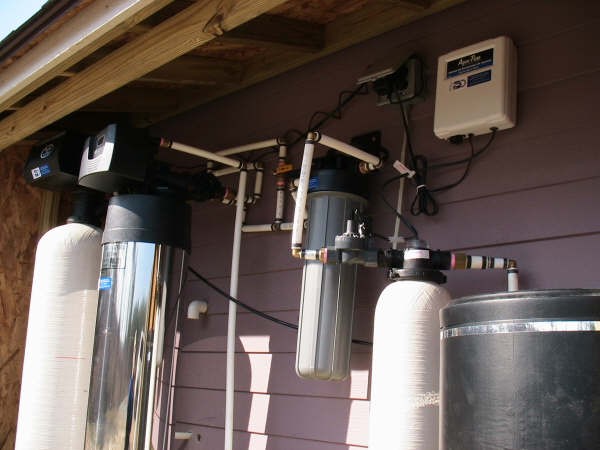Access to clean, safe water is paramount for any household, but when your water comes from a well, it can bring a unique set of challenges. Unlike municipal water supplies, well water is untreated and susceptible to contamination from various environmental sources. It’s crucial to ensure that this vital resource is not just available but also clean and safe for daily use. This blog post explores the best well water solutions that can help you maintain a pure and reliable water supply.
Whether you’re dealing with hard water, contamination, or other common issues associated with well water, understanding the right solutions can significantly improve your home’s water quality. These solutions range from initial water testing to sophisticated filtration systems and regular maintenance checks. By investing in proper well water treatment methods, you can protect your family’s health and extend the lifespan of your plumbing systems.
Contents
Comprehensive Water Testing
Before deciding on any treatment solution, the first step in managing well water quality is thorough testing. Testing alerts you to specific contaminants present, their concentration levels, and potential seasonal fluctuations in water quality. For more information on how vital testing is before implementing solutions, visit https://thehowtohome.com/well-water-solutions-improving-your-homes-water-supply/. Common tests check for bacteria, nitrates, pH levels, and other harmful substances like arsenic and lead.
Once you have a comprehensive profile of your well water’s composition, it’s easier to tailor a specific treatment solution that addresses each contaminant effectively. Regularly scheduled testing, preferably annually or bi-annually depending on the initial results and any subsequent changes in taste or color of the water, ensures ongoing safety.

Filtration Systems
To eradicate impurities detected in your well water analysis, installing a high-quality filtration system is essential. Filtration systems vary widely – from sediment filters that trap physical impurities to carbon filters designed for removing organic compounds and improving taste. Additionally, reverse osmosis systems can remove up to 99% of dissolved salts and bacteria present.
The choice of filtration system largely depends on the specific issues uncovered during the water tests. It’s important to consult with a professional to understand which system—or combination thereof—would most effectively purify your well water.
Water Softeners
Hard water, which contains high concentrations of magnesium and calcium, is a common issue for well owners. This can cause limescale build-up in plumbing and appliances, reducing their efficiency and lifespan. A water softener replaces these minerals with sodium ions through a process called ion exchange.
Beyond improving the longevity of plumbing fixtures and appliances, softened water enhances cleaning effectiveness – resulting in cleaner dishes and softer laundry. If testing reveals that hardness is an issue with your well water, consider installing a dedicated water softener or a combination system that includes both softening and filtration capabilities.
Ultraviolet (UV) Disinfection
If bacterial contamination is a concern – something quite common in many well waters – UV disinfection is an effective treatment option. This technology uses ultraviolet light to kill or deactivate microorganisms by disrupting their DNA. UV disinfection systems are typically used in conjunction with sediment pre-filters to ensure that the UV light penetrates effectively.
Easy to maintain and requiring minimal power, UV systems provide peace of mind by safeguarding your home’s drinking water against pathogens without introducing chemicals into the water supply.
Maintaining Your Well
Regular maintenance of your well itself is crucial to preventing issues from cropping up in your home’s water supply. This includes periodic checks for cracks or leaks in the well casing, ensuring that the well cap is securely sealed to prevent contaminants from entering, and protecting the area around the well from potential sources of contamination like fertilizers or pesticides.
Maintenance should be scheduled at least once a year but more frequently if issues are detected during routine checks or if there has been recent construction or seismic activity near your well site which could compromise its structural integrity.
In conclusion, ensuring that your home’s well provides safe, clean drinking water entails initial comprehensive testing followed by customized solutions based on those results. Committing to regular maintenance both of the mechanical components involved (like pumps and filters) and of the physical integrity of the well itself guarantees not just purity but also an undisturbed supply of life-sustaining freshwater.
https://thehowtohome.com/well-water-solutions-improving-your-homes-water-supply/ can empower you as a homeowner to make informed decisions regarding managing your private well – turning challenges into assurances for years to come.

